40 when reading food labels what to look for
5 tips for decoding food labels - Harvard Health Here are 5 ways to make food labels work for you: Size matters. Serving size is always the first item on the label. All other information is based on that serving size. The servings per container tell you know how many portions are in the whole box, package, or can. Beware: many packages contain more than one serving. How to Read Food Labels: Your Complete Consumer Guide Details included on food labels are the nutritional composition of a food, as well as ingredients and their relative amounts. When relevant, they may also indicate important details about the food's quality, origin, processing, and method of preservation. With this information, the theory goes, you can make intentional decisions about what to buy.
How to Read Food Labels for a Heart-Healthy Diet What's the most important number on a food label? Calories, Total fat, Servings per container, Sodium, What is the percent daily value based on? The average American's diet, A 2,000-calorie-a-day diet, The ideal diet to aim for, What's another name for trans fats? Partially hydrogenated oil, Omega-3 fatty acid, Olive oil, Butter,

When reading food labels what to look for
What Should I Look for When I Read Nutrition Labels? Here's your quick list to determine if the label you're reading passes the PLANTSTRONG sniff test. 1) Sodium: Your recommended total daily intake should be around 1500-2000mg daily so when reading a label, you want the number of calories per serving to be equal to or lesser than the number of milligrams of sodium per serving. How to understand food labels | Eat For Health The Nutrition Information Panel on a food label offers the simplest and easiest way to choose foods with less saturated fat, salt (sodium), added sugars and kilojoules, and more fibre. It can also be used to decide how large one serve of a food group choice or discretionary food would be and whether it's worth the kilojoules. Food labels: what to look for | Eat For Health In this section. Tips for eating well. Healthy eating throughout all of life. How to understand food labels. Food labels: what to look for. Healthy Recipes. Food Safety.
When reading food labels what to look for. How to Read a Food Label - FoodAllergy.org While all ingredients in a food are supposed to be listed in the ingredients list, FALCPA covers only the eight most common allergens. These are milk, egg, peanut, tree nuts, soy, wheat, fish and crustacean shellfish. Note that molluscan shellfish—such as oysters, clams, mussels or scallops—are not required to be labeled as a major allergen. Reading Food Labels | GI Foundation A quick and easy way to know if the food is low GI is to look out for the GI Symbol on food packaging. The GI Symbol is our guarantee to consumers that they can trust that the GI value stated near the nutrition information label is accurate, and meets strict nutritional criteria consistent with International dietary guidelines. How to Read Food Labels Without Being Tricked - Healthline A good rule of thumb is to scan the first three ingredients, as they make up the largest part of what you're eating. If the first ingredients include refined grains, a type of sugar, or... How to Read a Food Label to Make Sure It's Keto in 3 Easy Steps Food manufacturers are required by the FDA to list ingredients in order of predominance by weight. The ingredient that weighs the most is listed first, and the ingredient that weighs the least is listed last. So stay away from foods where sugar or starch is listed as one of its first 5 ingredients. That's too many carbs for fat loss.
How to Read a Dog Food Label - American Kennel Club Quick Tip: Look at the basic four: protein, fat, fiber, and water. Many states have regulations requiring the minimum amount of nutrients a pet food must contain, as well as the maximum amount of ... How to Understand and Use the Nutrition Facts Label | FDA You can use the label to support your personal dietary needs - look for foods that contain more of the nutrients you want to get more of and less of the nutrients you may want to limit. Nutrients... How to Read Food Labels: Your Complete Consumer Guide In the United States, if a food has less than 0.5 grams of artificial trans fats in a serving, the food label can read 0 grams trans fats. Since 2018, all foods sold in the US have by law had to meet this designation. ... Look for foods that are high in the good stuff, such as fiber, and low in the bad stuff, like saturated fat, sodium, and ... Reading Food Labels | ADA - American Diabetes Association The Nutrition Facts labels on foods are really the key to making the best choices. We'll cover the basics so that these labels make shopping easier for you. Get started, Understanding Carbs, You've heard it all. From carb-free to low-carb, to whole and empty carbs, it's hard to know what it all means. Learn more, Food & Blood Sugar,
Food Labels | CDC - Centers for Disease Control and Prevention If you eat the whole thing, you are eating 8 times the amount of calories, carbs, fat, etc., shown on the label. Total Carbohydrate shows you types of carbs in the food, including sugar and fiber. Choose foods with more fiber, vitamins, and minerals. Choose foods with lower calories, saturated fat, sodium, and added sugars. Avoid trans fat. What to Look for When Reading Food Labels | Quaker Oats Many people, however, don't know how to properly interpret the information contained in food labeling. Many food labels are also misleading or confusing, trying to hide less healthy ingredients and additives, for example. Note: To read the information about each section of the food label, place your mouse over the section you wish to read about. 7 Hidden Messages In Packaged Food Labels - Eat This Not That Here's what to look for in your food labels. Search bar input Search button ... However, knowing the different types of fat will matter when reading a nutrition label. According to Mayo Clinic, limit your saturated fat count to less than 10 percent of calories a day. As for trans fat, while some trans fats are created naturally in some foods ... Understanding Food Nutrition Labels | American Heart Association Learn what to look for on the label. 1 - Start with the serving information at the top. This will tell you the size of a single serving and the total number of servings per container (package). 2 - Next, check total calories per serving and container.
How To Read Food and Beverage Labels - National Institute on Aging There are three types of product dates commonly printed on packaged foods and beverages: "Sell by" tells how long the manufacturer suggests that a store should sell items such as meat, poultry, eggs, or milk products. Make sure you buy by this date. "Use by" tells how long items will be at peak quality.
How to read food labels | healthdirect In Australia, the law requires all manufactured foods to carry labels containing safety and nutrition information. This information helps you to make decisions about the food you buy and eat so you can follow a healthy diet. The label will tell you: the name of the product, describing accurately what it is, the brand name,
Learning To Read Labels :: Diabetes Education Online Let's practice with this example label. The serving size listed is 3 pieces (or 90 grams if you are weighing the product). The grams of total carbohydrate per serving is 30 grams. If you eat 6 pieces, that is two servings. You would be getting 60 grams of total carbohydrate (1 serving = 30 grams of total carbohydrate, 2 servings = 60 grams of ...
Food Labels: Fat & Cholesterol | Home & Garden Information Center Quick Guide to % DV makes it easy to choose foods. It tells you that 5% DV or less of a nutrient is low, and 20% DV or more is high. For all nutrients that you want to limit (e.g., total fat, saturated fat, trans fat, cholesterol and sodium), choose foods often that contain 5% DV or less of these nutrients.
What to Look For on Nutrition Labels - dummies Dietary fiber: Choose the foods with the most fiber. Research shows that people who eat plenty of fiber also eat fewer calories. You get the most fiber in foods made from whole grains, such as cereals and breads. Fruits and vegetables have fiber, too. A food is considered to be high in fiber if it has at least 5 grams of fiber per serving.
The Importance of Reading the Food Label and Nutritional Facts Just remember, reading food labels can help you keep your intake of the good stuff like vitamins, protein, and good fat high - and your intake of sodium, added sugars, and bad fats low. Food labels are just one more excellent tool for helping you build a healthy lifestyle for your family. Check Price. Check Price.
Food label reading guide | Nutrition Australia When reading the NIP: • always read the per 100g column to compare similar products, because the serve sizes differ between brands. • always compare similar products, for example compare one brand of yoghurt with another brand of yoghurt. What to look for when reading food and drink labels (per 100g) Health Star Ratings,
How To Read Food Labels - 10 Tips - Pritikin Weight Loss Resort Watch out for sugars and other caloric sweeteners that don't say "sugar" but in fact are, such as corn syrup, rice and maple syrup, molasses, honey, malted barley, barley malt, or any term that ends in "ol," such as sorbitol or maltitol, or "ose," such as dextrose or fructose.
Reading food labels: Tips if you have diabetes - Mayo Clinic Look for foods with fats, cholesterol and sodium on the low end of the Daily Value; keep fiber, vitamins and minerals on the high end. If your doctor or registered dietitian recommends more or less than 2,000 calories a day, you may need to adjust the percentage accordingly — or simply use the percentage as a general frame of reference.
Easy Guide to Understanding Food Labels When You Have High ... - MyDoc Food labels tell you what is in the food and drinks you are consuming. Every packaged and processed product should have a food label to help you determine its nutrition content. The food labels can help you sieve through misleading claims, shop faster and make better food choices to lower your cholesterol levels.
Food labels: what to look for | Eat For Health In this section. Tips for eating well. Healthy eating throughout all of life. How to understand food labels. Food labels: what to look for. Healthy Recipes. Food Safety.
How to understand food labels | Eat For Health The Nutrition Information Panel on a food label offers the simplest and easiest way to choose foods with less saturated fat, salt (sodium), added sugars and kilojoules, and more fibre. It can also be used to decide how large one serve of a food group choice or discretionary food would be and whether it's worth the kilojoules.
What Should I Look for When I Read Nutrition Labels? Here's your quick list to determine if the label you're reading passes the PLANTSTRONG sniff test. 1) Sodium: Your recommended total daily intake should be around 1500-2000mg daily so when reading a label, you want the number of calories per serving to be equal to or lesser than the number of milligrams of sodium per serving.


/Food-label-Envision-575f13f25f9b58f22ee9a2dc.jpg)

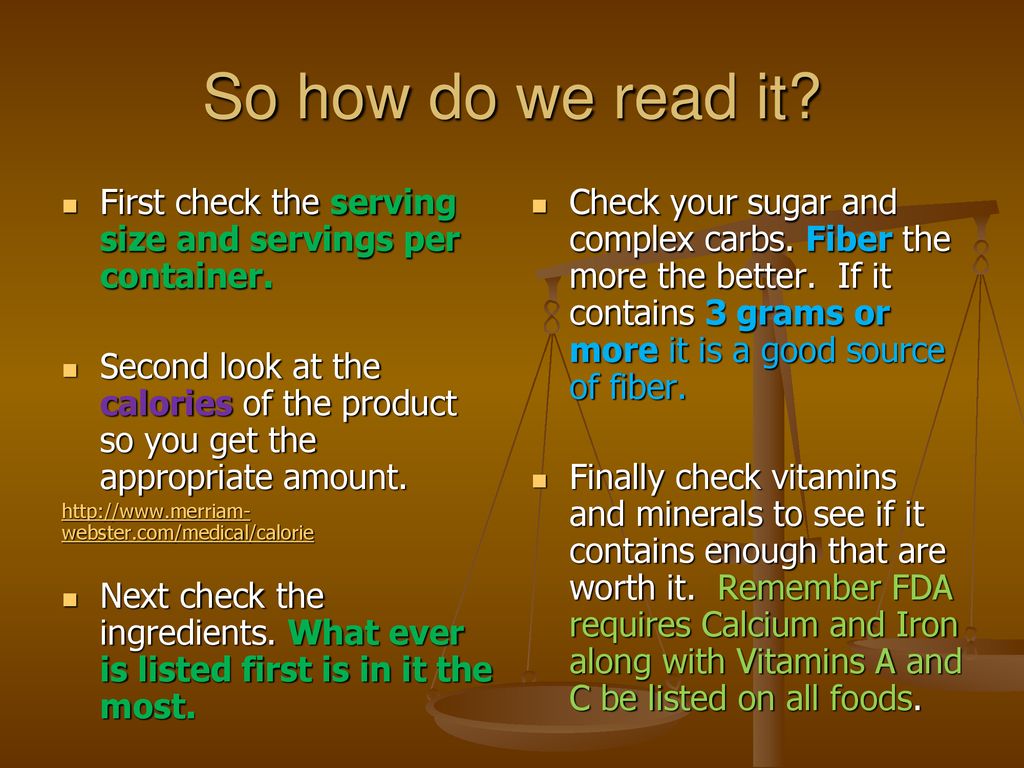
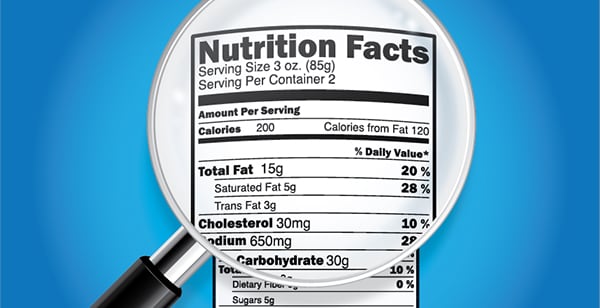


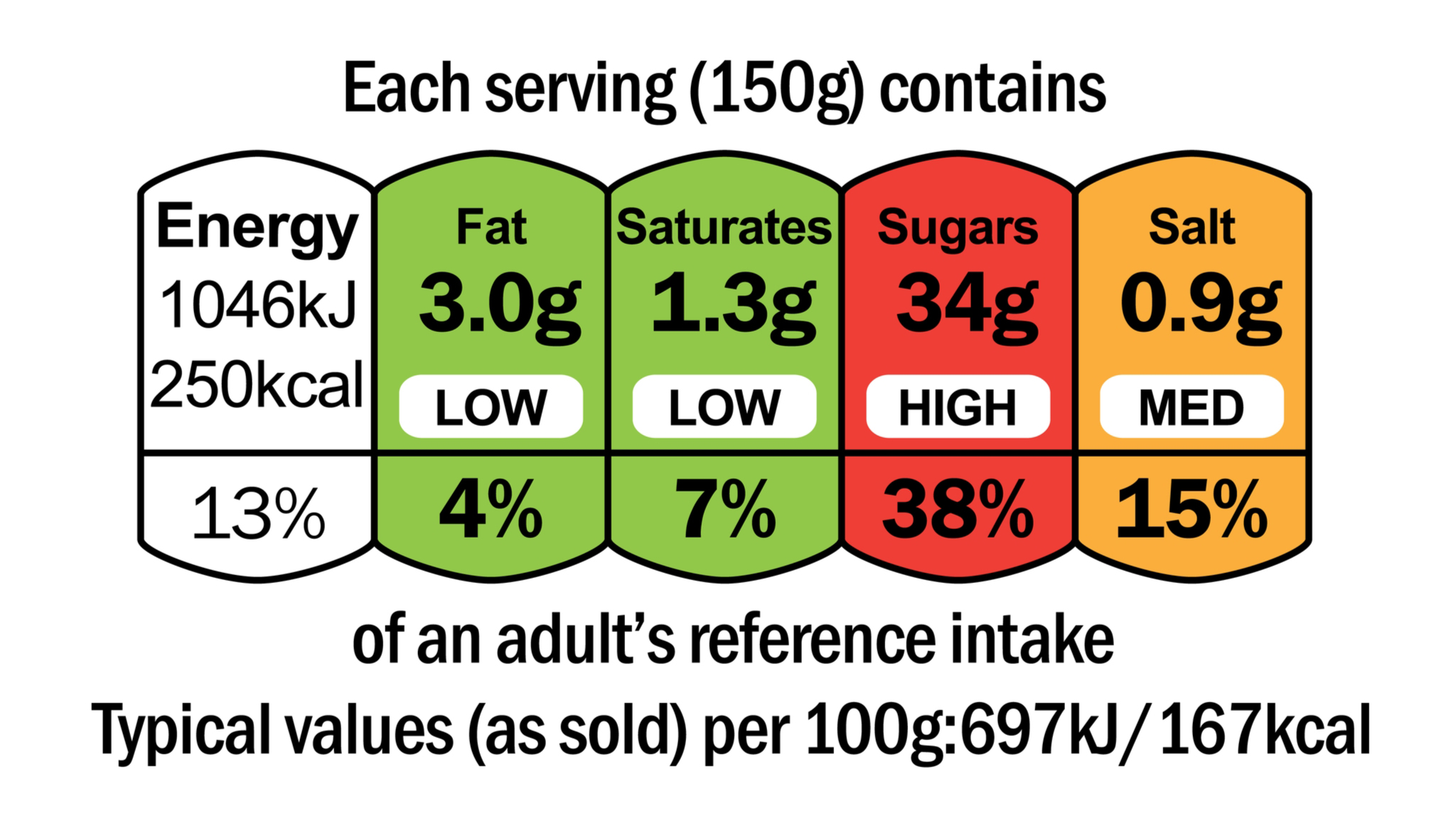

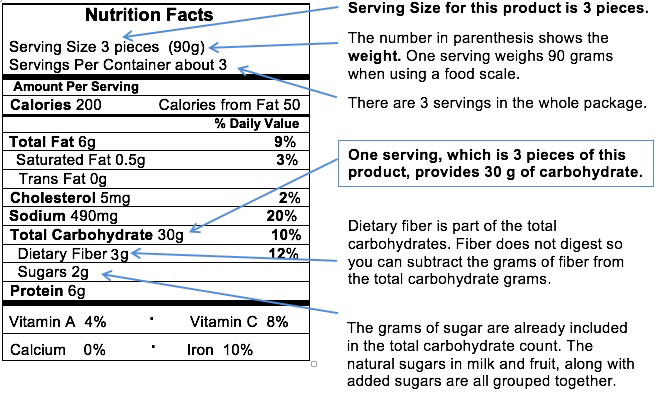


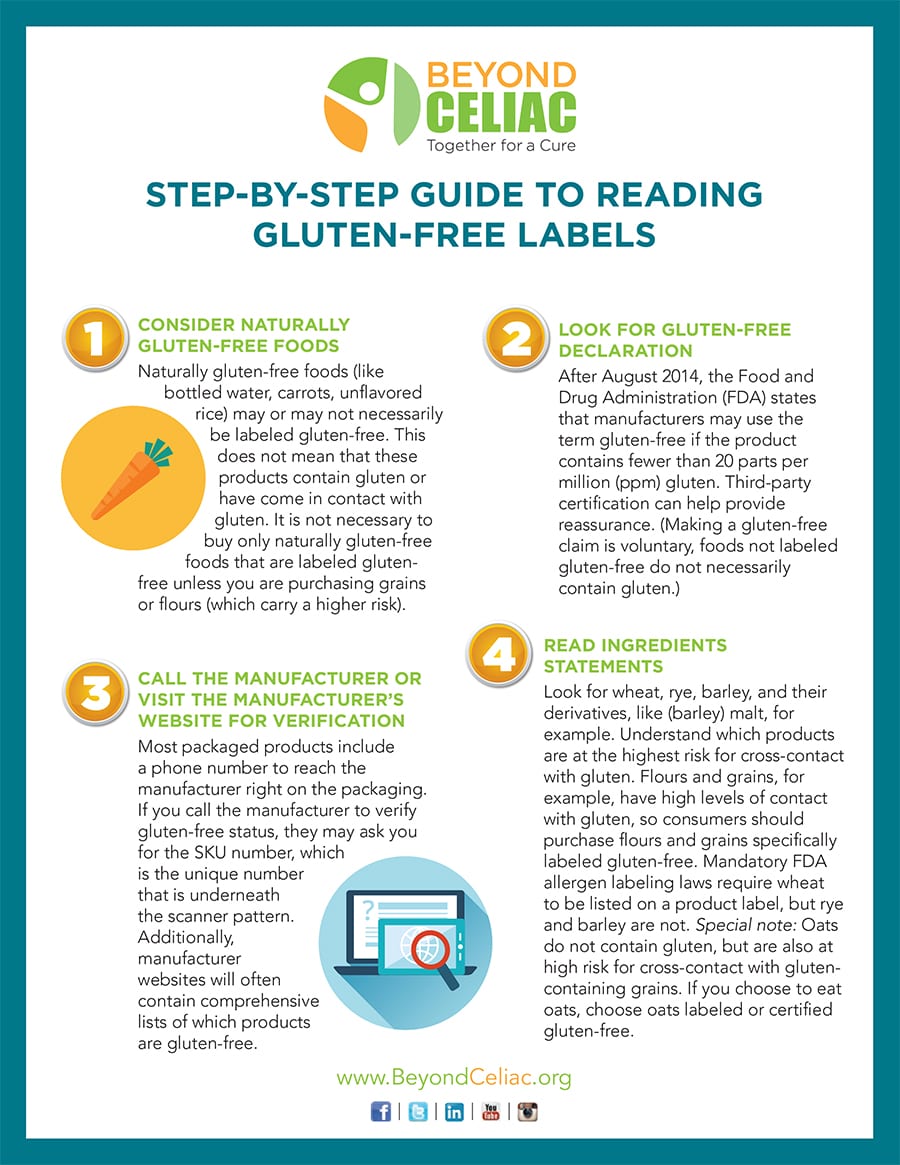


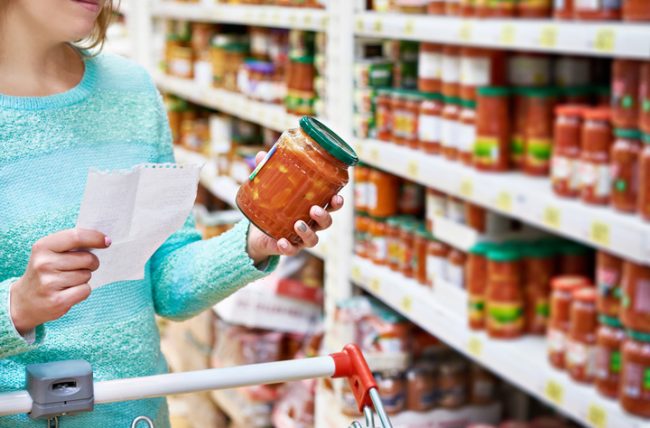
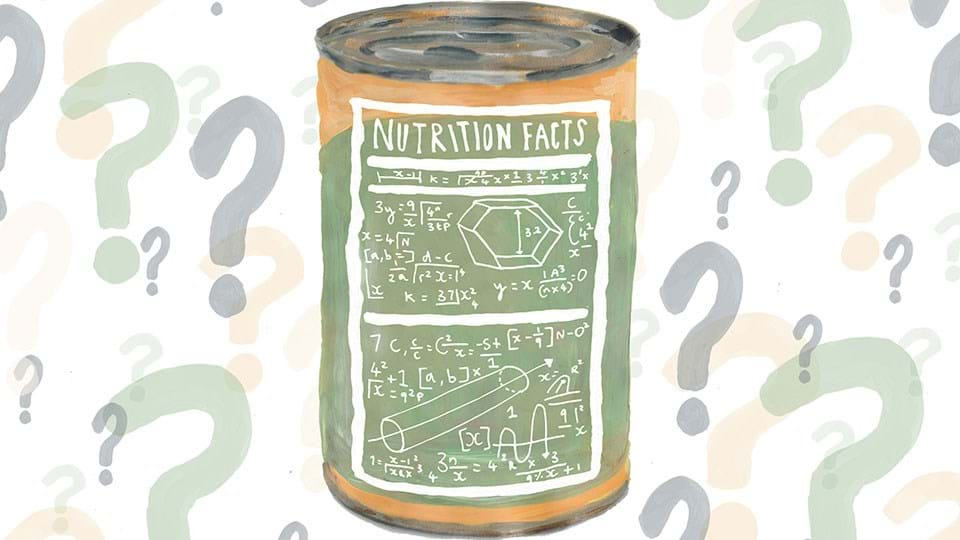

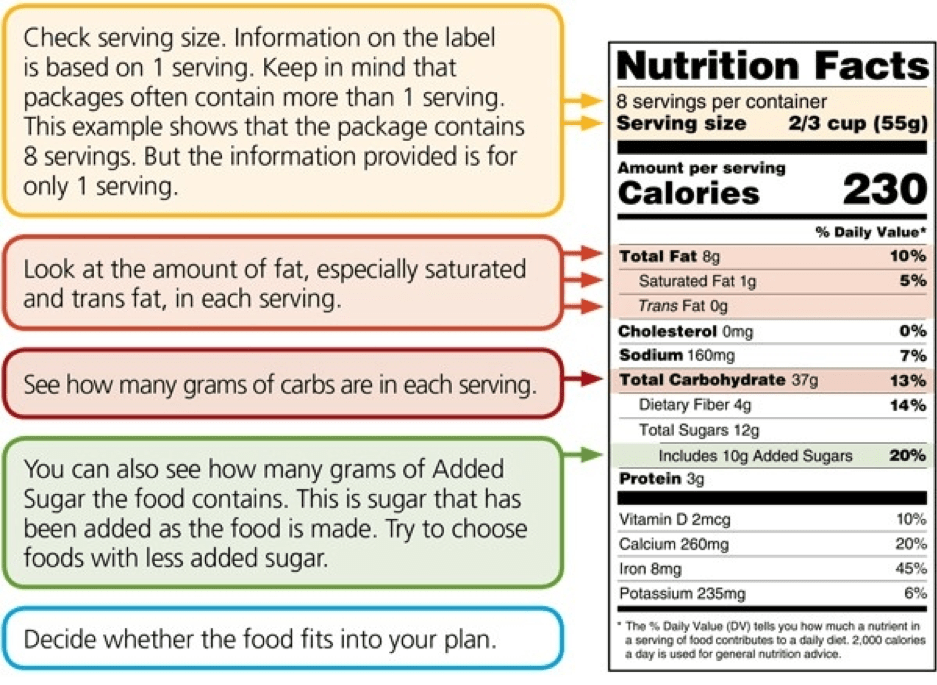

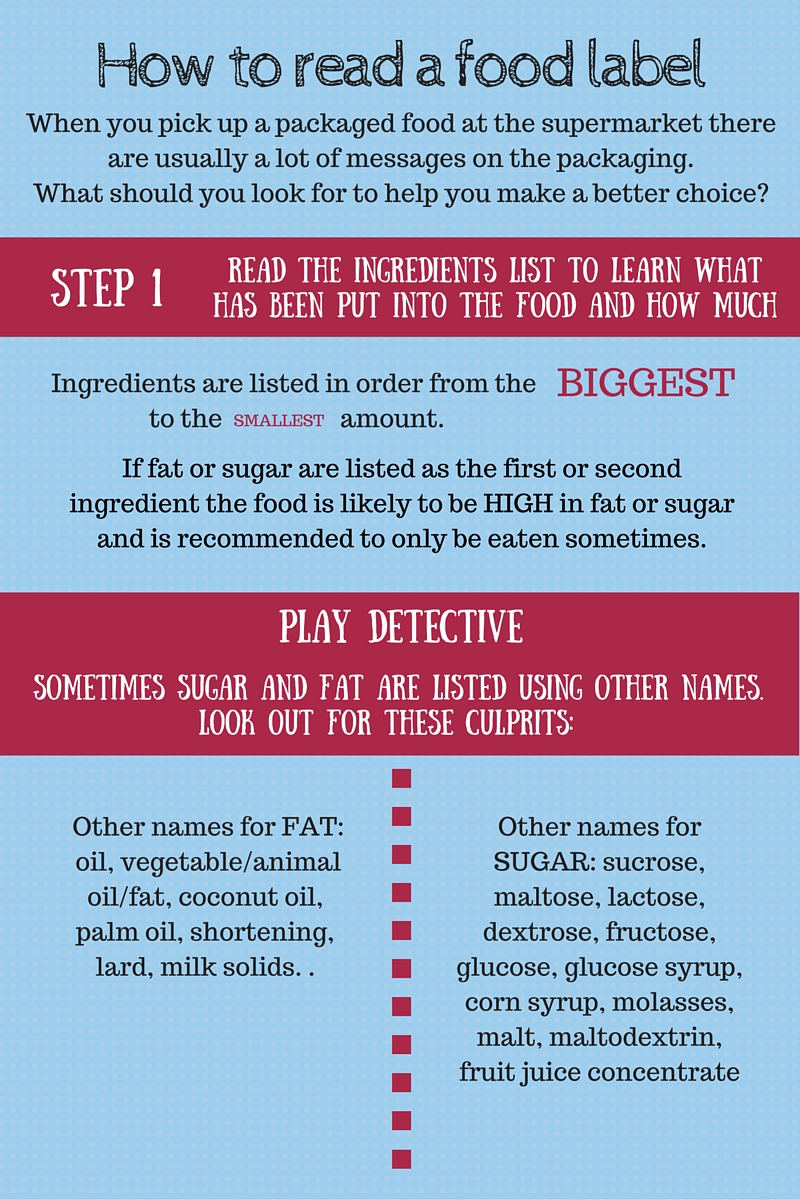

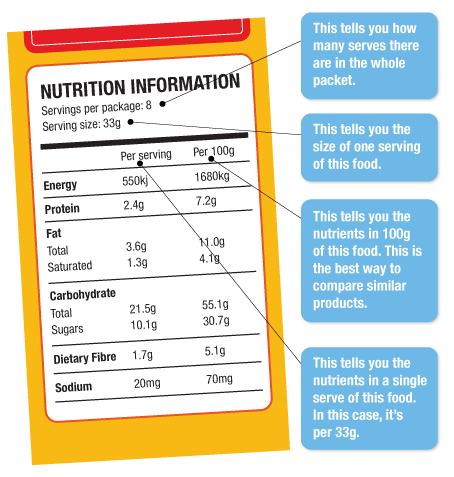
:format(webp)/https://www.thespec.com/content/dam/thespec/life/health-wellness/advice/2020/06/23/reading-the-food-label-six-things-to-look-for/labels.jpg)
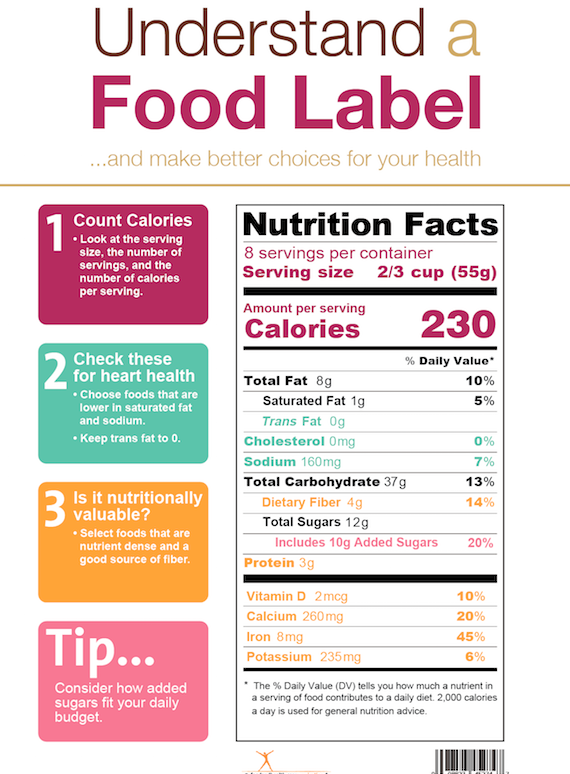
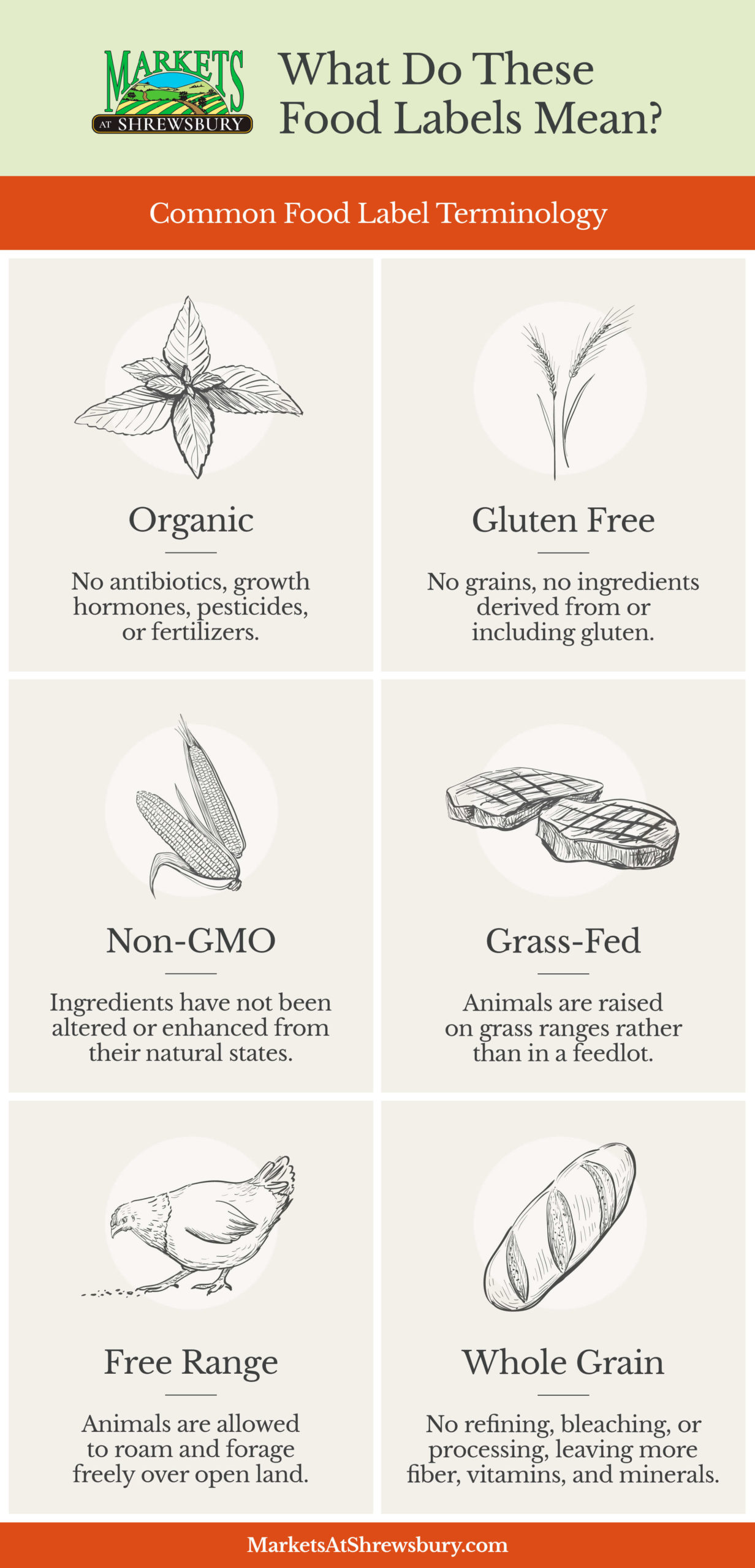
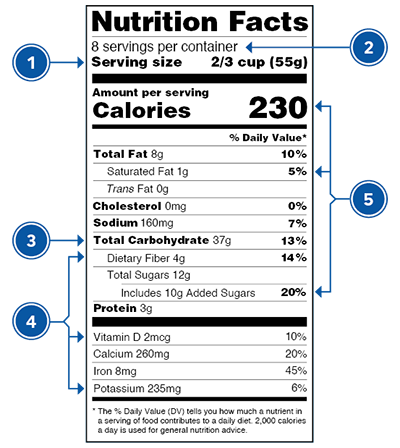

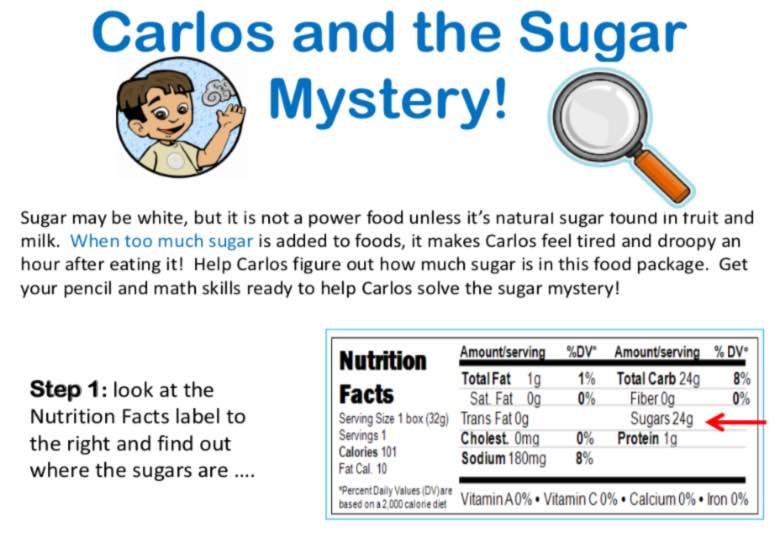
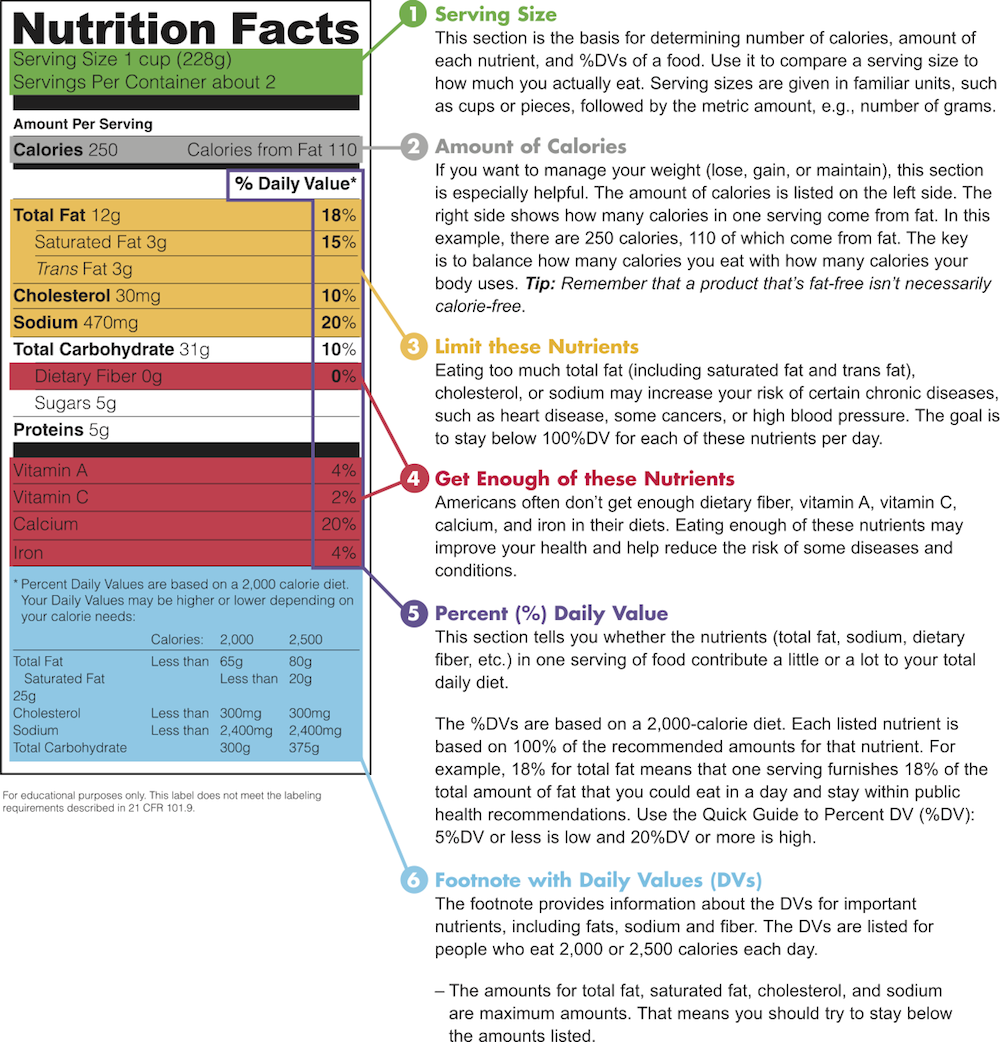


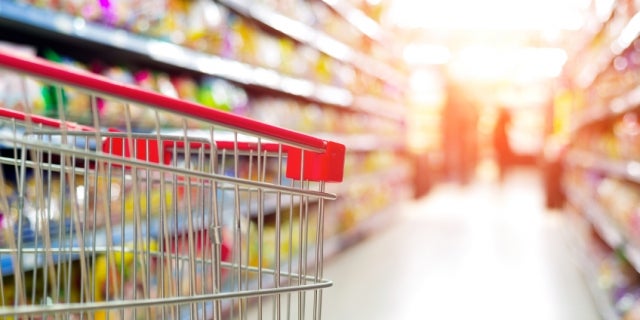
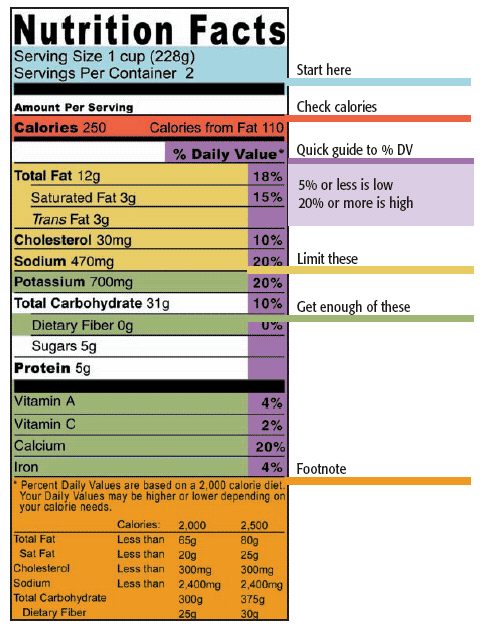
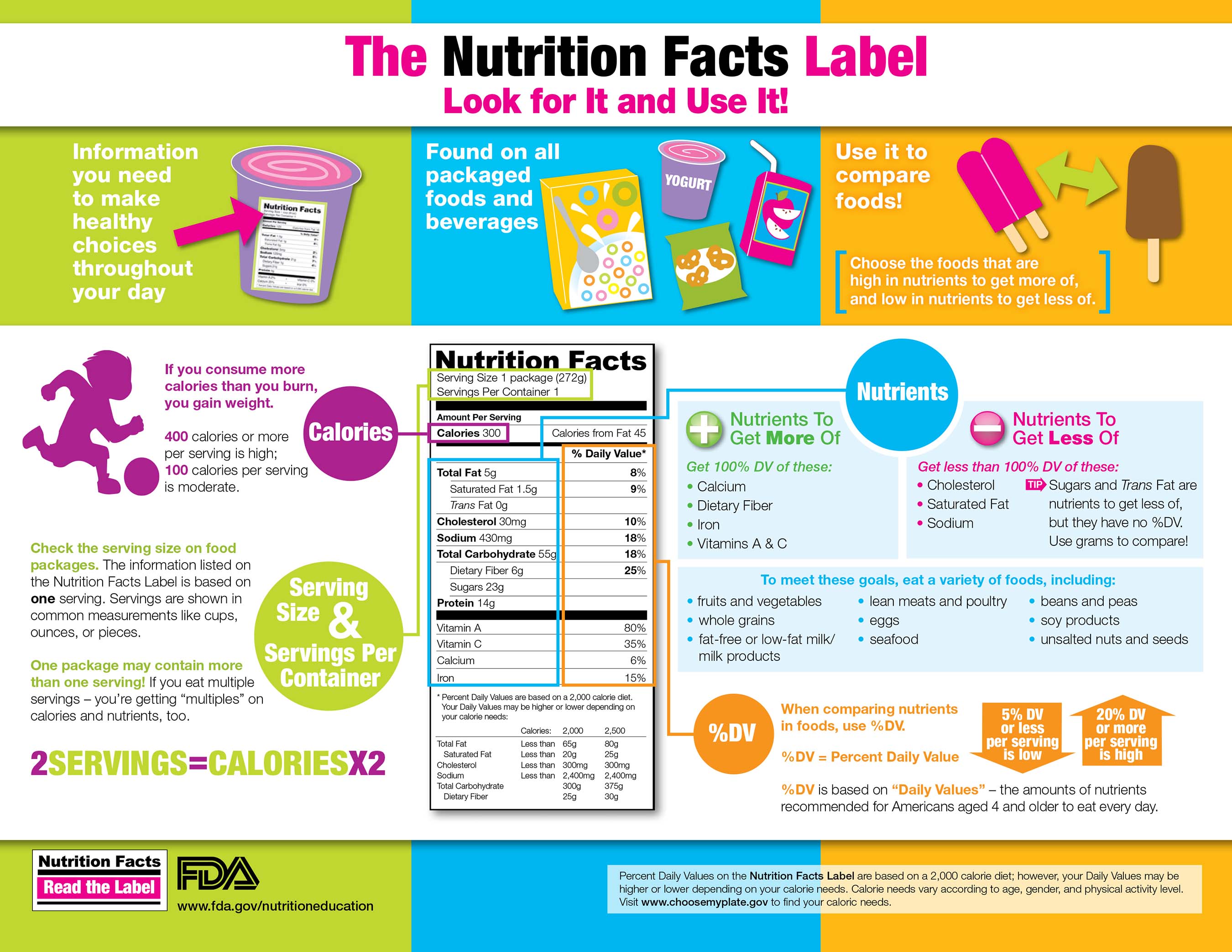
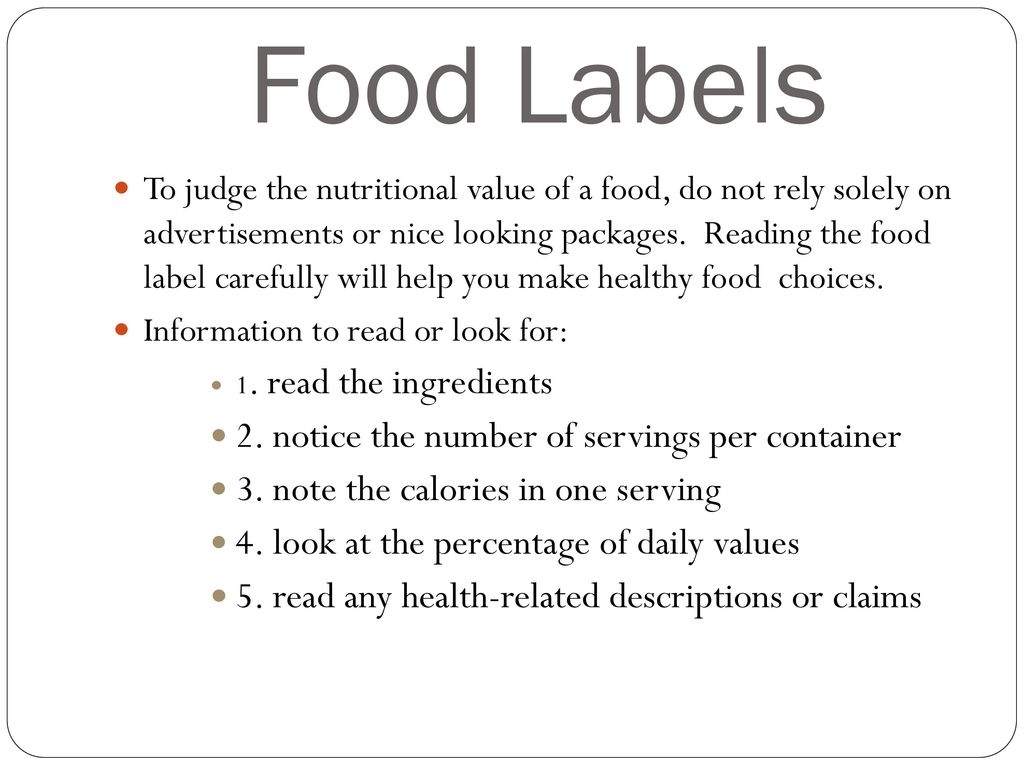
Post a Comment for "40 when reading food labels what to look for"